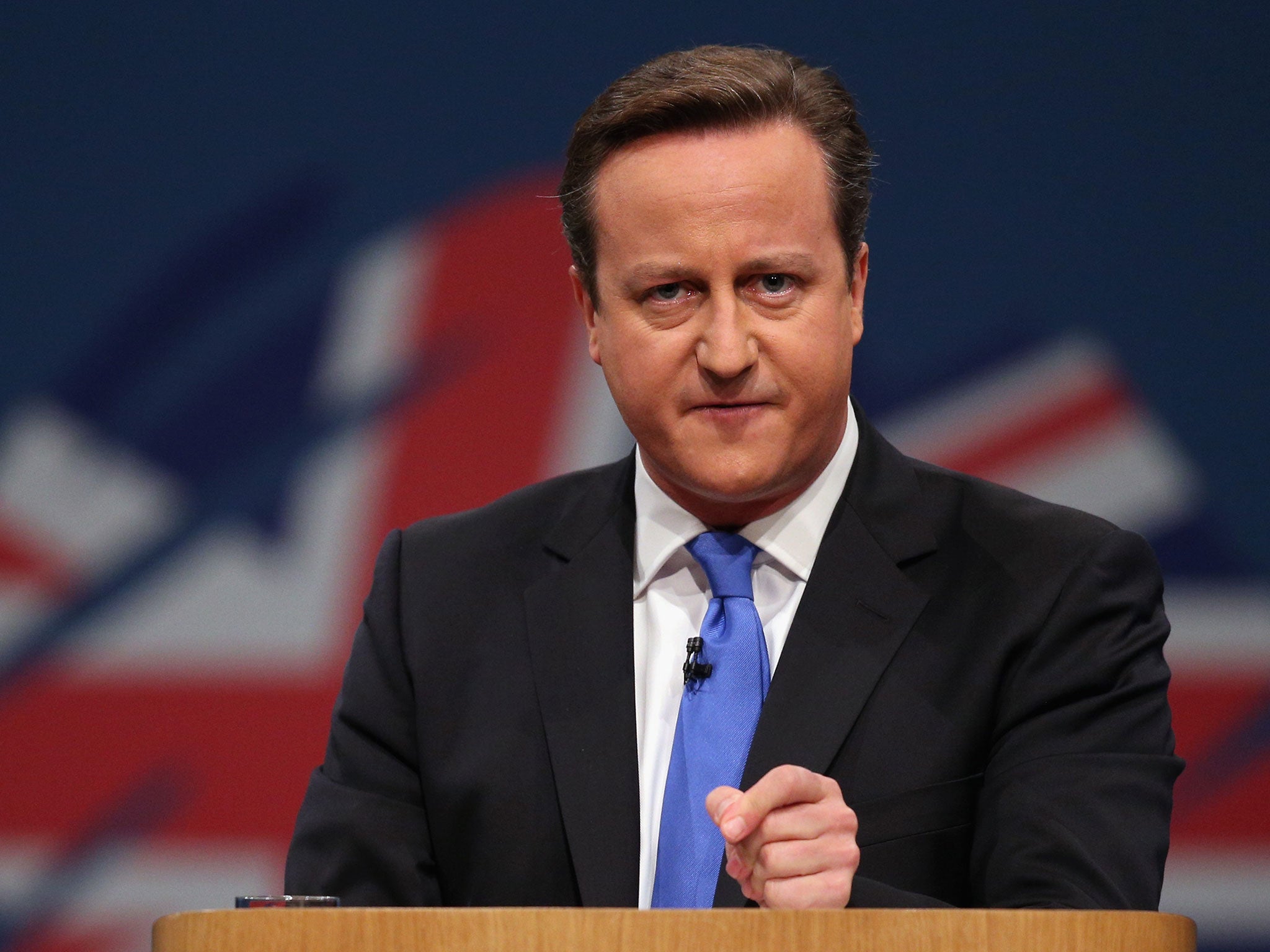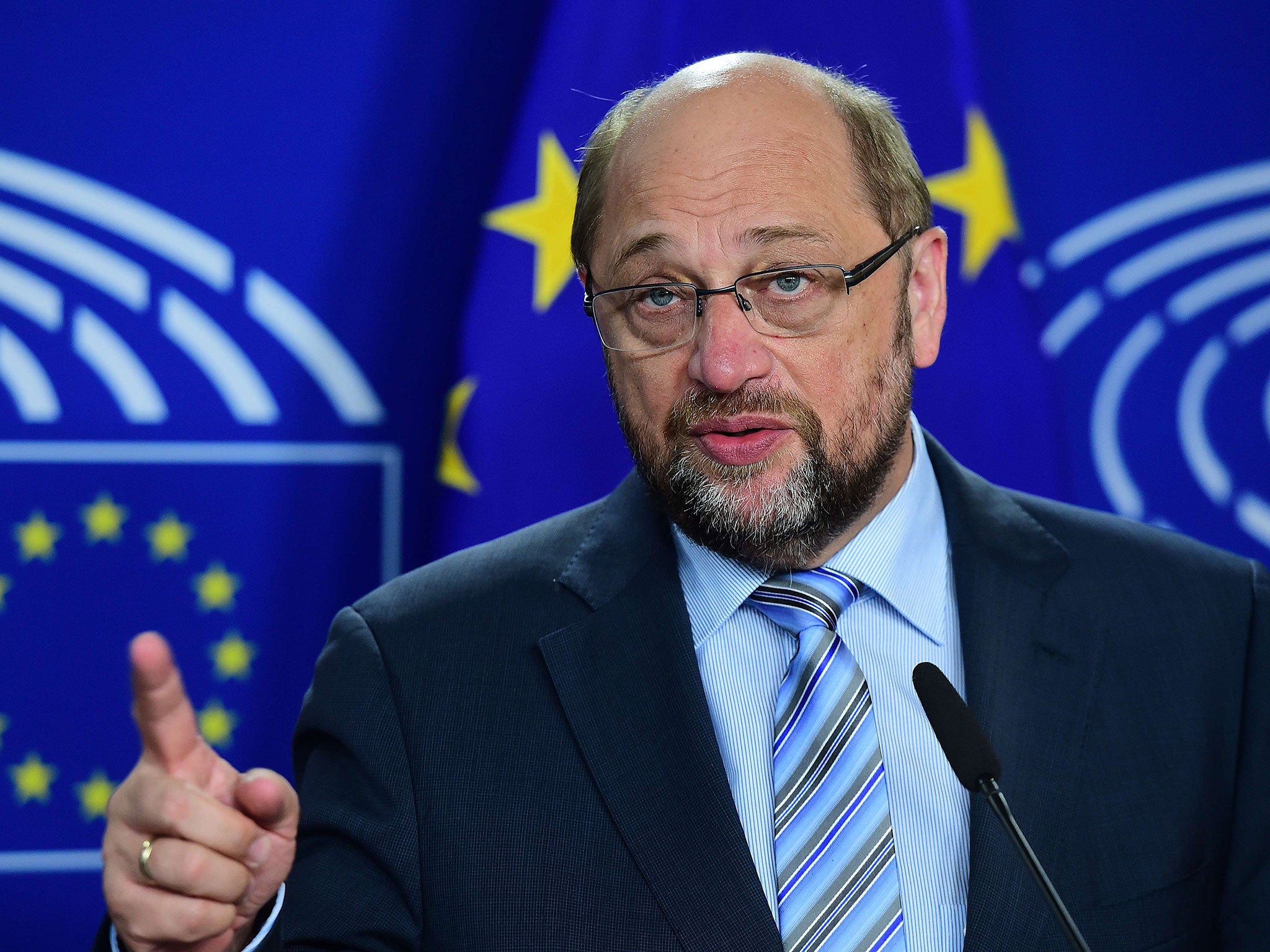EU referendum: David Cameron boosted by support from European politicians for a 'two-speed Europe'
Senior European politicians have suggested a possible pre-referendum deal

Your support helps us to tell the story
From reproductive rights to climate change to Big Tech, The Independent is on the ground when the story is developing. Whether it's investigating the financials of Elon Musk's pro-Trump PAC or producing our latest documentary, 'The A Word', which shines a light on the American women fighting for reproductive rights, we know how important it is to parse out the facts from the messaging.
At such a critical moment in US history, we need reporters on the ground. Your donation allows us to keep sending journalists to speak to both sides of the story.
The Independent is trusted by Americans across the entire political spectrum. And unlike many other quality news outlets, we choose not to lock Americans out of our reporting and analysis with paywalls. We believe quality journalism should be available to everyone, paid for by those who can afford it.
Your support makes all the difference.Two senior European politicians have sketched the outline of a possible pre-referendum deal with David Cameron that would allow Britain to become a kind of “low-definition” member of the European Union.
Emmanuel Macron, the French Economy Minister, said that it was time to “accept the idea of a two-speed” Europe in which some countries would stand aside from progress towards greater unity and integration.
Meanwhile, the President of the European Parliament, Martin Schulz, a German Social Democrat, urged other members to accept Mr Cameron’s demand for Britain to be exempted from the EU objective of an “ever-closer union”.
Although negotiations are at an early stage, the comments suggest that important political figures in the two most influential countries in Europe are open to a deal which would formalise Britain’s status as a kind of semi-detached member of the EU. Mr Cameron made similar proposals – to a mixed reception – during his two-day, four-capital European tour last week.
Both the French and German politicians made it clear that they were speaking personally. Mr Macron, 37, said that he was talking as a representative of a “younger generation” of European politicians, who wanted to revive the “European dream” and fight the notion that the EU had become irretrievably “dead and technocratic”.
In an interview with Le Journal du Dimanche, he called for the broader EU of 28 countries, including Britain, to become “simpler, clearer and more efficient”. This would involve, among other things, a European single market in energy and technology. At the same time, Mr Macron said, the “avant garde” of the 19 countries that use the euro should push ahead with “more solidarity and more integration”. This would involve a single budget, common debt and convergence of tax policies.

Much of what Mr Macron said might have been taken from Mr Cameron’s own script. Before a dinner with the French President, François Hollande, last Thursday, the Prime Minister said he had “no objection to” and even “supported” the idea of greater economic integration for other EU countries within the eurozone. Mr Macron is expected to express similar ideas this week in a joint statement with the German Economics Minister, Sigmar Gabriel.
Mr Schulz also called for a recognition of a de facto separate status for Britain in an interview with the Frankfurter Allgemeine Sonntagszeitung. “In past decades, the only country to have exempted itself from the process of European integration through special conditions has been Britain,” he said. By accepting Mr Cameron’s call to be exempted from ever-closer union, “we would only be recognising what has been the case for London for some time”.
Mr Schulz said he wanted Britain to remain in the EU, but not at any price. “I will not allow myself to be blackmailed in order to satisfy the ideological interests of the right wing of the Tory party,” he said. “My red line is that we must not start plucking the EU apart.”
The idea of a formalised “two-speed” Europe would allow negotiations with Mr Cameron to be merged into plans to strengthen the eurozone. Both issues are to be discussed at a summit in Brussels later this month. But even as a member of a “lower-speed” Europe, Britain would remain subject to supranational European law.
The Polish government made it clear last week it would veto any attempt by Britain to weaken the rights of free movement for European citizens.
Join our commenting forum
Join thought-provoking conversations, follow other Independent readers and see their replies
Comments